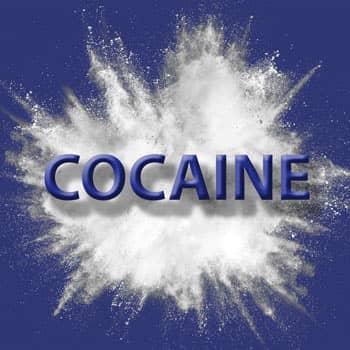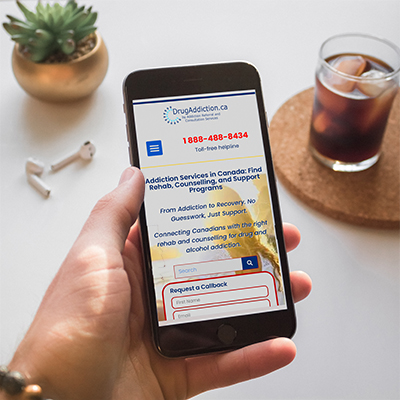- No Comments
- Revision November 3, 2025
New Treatment for Cocaine Addiction
Cocaine has long been one of the most widely used illegal stimulants in Canada. While it might be associated with parties or nightlife, the reality of cocaine addiction is far from glamorous. It can take a serious toll on a person’s health, relationships, and future. The good news is that new approaches to treatment are emerging across Canada, giving hope to those struggling with cocaine use and their families.
The Reality of Cocaine Addiction
Cocaine is a powerful stimulant that boosts energy, alertness, and confidence by flooding the brain with dopamine, the “feel-good” chemical. But what starts as a short-lived high quickly leads to a crash — feelings of exhaustion, irritability, and strong cravings for more. Over time, people can become trapped in a cycle of use, chasing the high while damaging their physical and mental health.

Health risks of long-term cocaine use include:
- Heart problems (high blood pressure or heart attack)
- Mood disorders such as anxiety and depression
- Sleep issues and exhaustion
- Damage to the Nasal septum (septum perforation)
Cocaine addiction doesn’t just affect the person using the drug — families, friends, and communities often feel the impact too.
Traditional Ways of Treating Addiction to Cocaine
For years, treatment in Canada has relied on a combination of approaches. These include:
- Counselling and Therapy: Programs like Cognitive Behavioural Therapy (CBT) help people understand what triggers their cravings and build healthier coping skills.
- Support Groups: Sharing experiences with others who have faced similar struggles can reduce feelings of isolation and build a network of support (cocaine anonymous).
- Residential Treatment Centres: Some people benefit from living in a structured environment where they can focus fully on recovery.
- Outpatient Programs: Others take part in therapy while continuing to live at home, balancing treatment with work or family life, including Online Recovery Coaching.
- Harm Reduction Services: Education and support that help people reduce risks, even if they aren’t ready to quit completely.

These methods have helped many Canadians, but recovery is not one-size-fits-all — and researchers are looking for even better solutions.
What’s New in the Treatment of Cocaine?
While no “cure” for cocaine addiction exists, new treatment approaches are offering hope:
1 . Contingency Management
This approach rewards people for positive steps in recovery, such as attending appointments or providing drug-free tests. Simple incentives — like vouchers or gift cards — have been shown to motivate people and improve success rates
1 888-488-8434
Get immediate
help for addiction.
2 . Advances in Medication Research
Unlike opioid addiction, where treatments like methadone or Suboxone are available, there’s currently no approved medication in Canada that directly treats cocaine addiction. However, scientists are studying drugs that could help reduce cravings or block cocaine’s effects. While research is ongoing, these efforts could one day transform treatment.
3 . Virtual and Telehealth Options
The pandemic sped up the growth of online counselling and support groups. Now, more Canadians can access help from home, which is especially useful for those in rural or remote areas.
4 . New Therapies and Technology
Researchers are testing tools like Virtual Reality (VR), which allows people to safely face triggers in a controlled setting and practice coping strategies. Apps and digital tools are also being developed to help manage cravings from cocaine addiction and other drugs and connect people with support in real time.
5 . Holistic and Culturally Grounded Care
More treatment centres are offering whole-person approaches — combining therapy with nutrition, exercise, mindfulness, and spiritual support. Indigenous-led programs are also growing, providing culturally safe care that respects traditions and healing practices.
The Road Ahead
Canada is making progress, but challenges remain. There are still long waitlists for funded treatment programs, and not everyone has equal access to care. Stigma — the fear of being judged for having an addiction — also prevents many people from reaching out for help.
The most important message? Recovery is possible. Cocaine addiction is not a life sentence. With more flexible programs, new technology, and people struggling with cocaine use have more options than ever before.
Finding Help
If you or someone you love is struggling with cocaine, know that support is available. Talk to your doctor, reach out to local addiction services, or call our helpline.
The earlier someone seeks help, the better the chances of recovery. Cocaine addiction is a tough battle, but new treatment approaches in Canada are giving people real hope. With the right support and care, recovery is not only possible — it’s within reach.


Marc J. Bernard
Author,
Substance Use Disorder & Recovery Professional,
Referral & Consultation Counsellor

